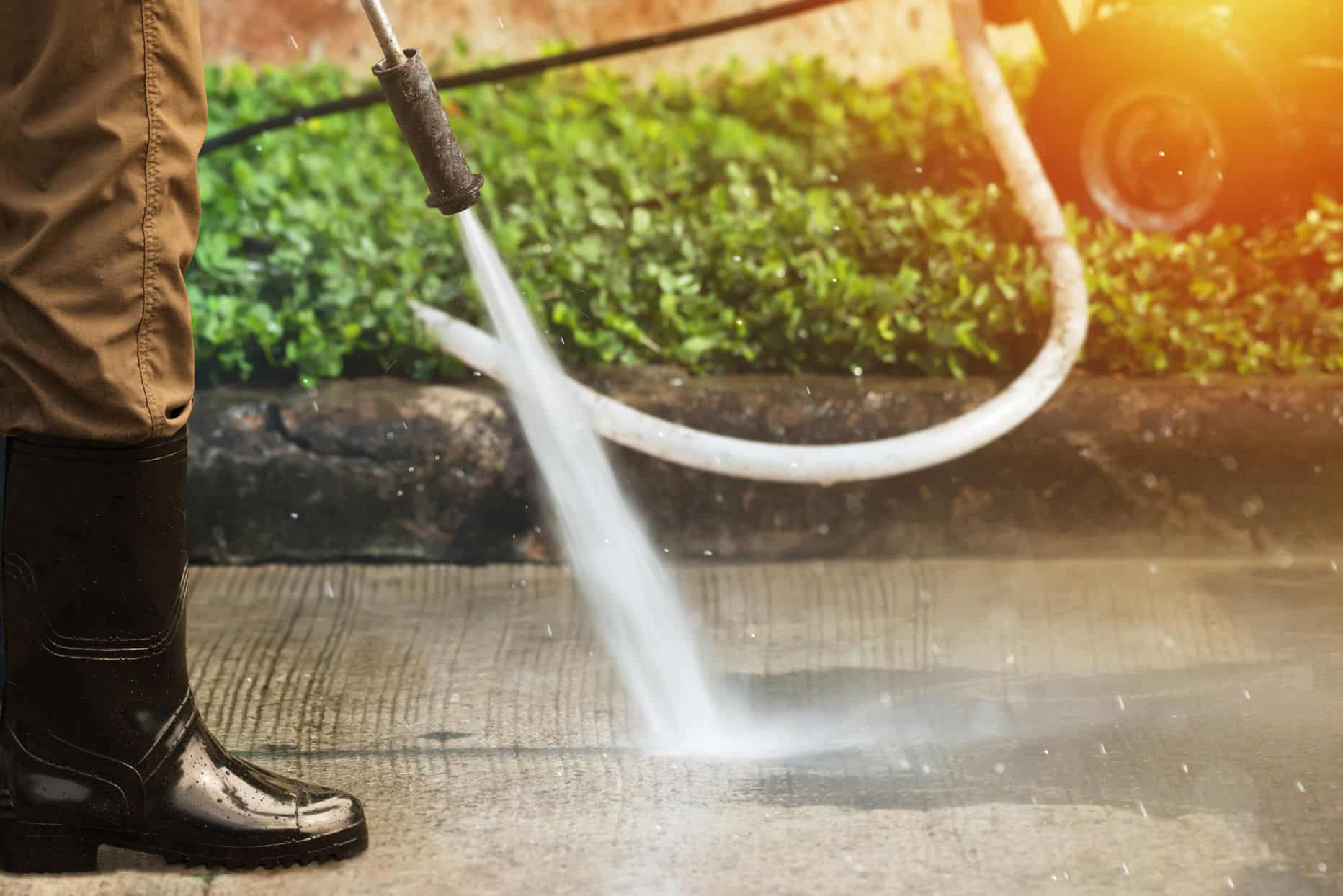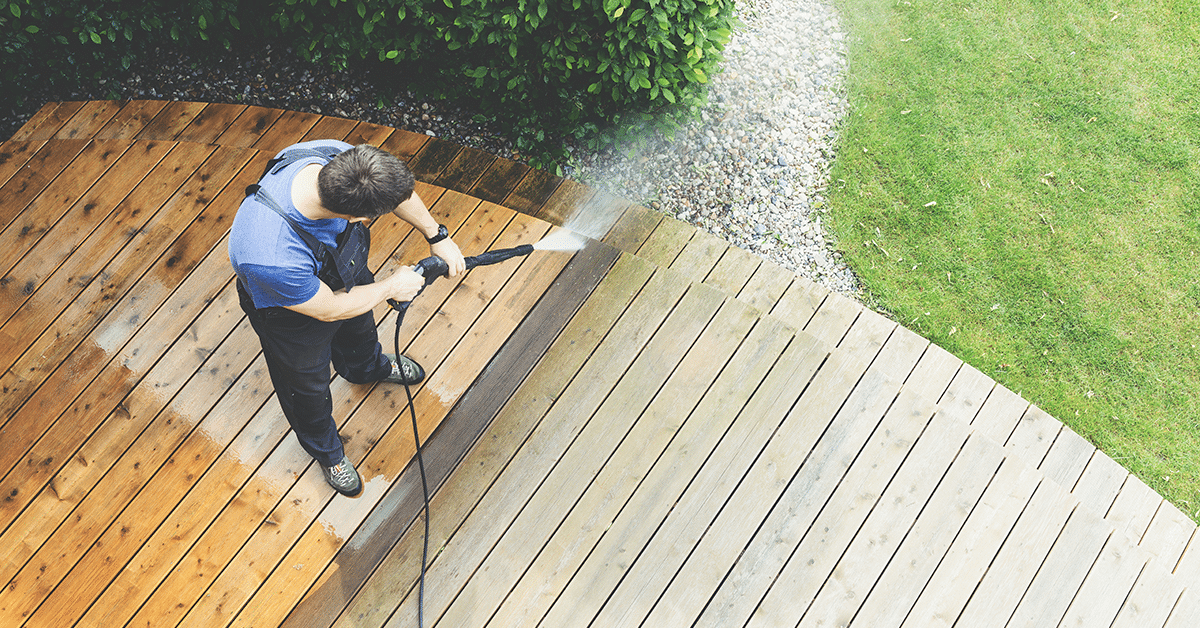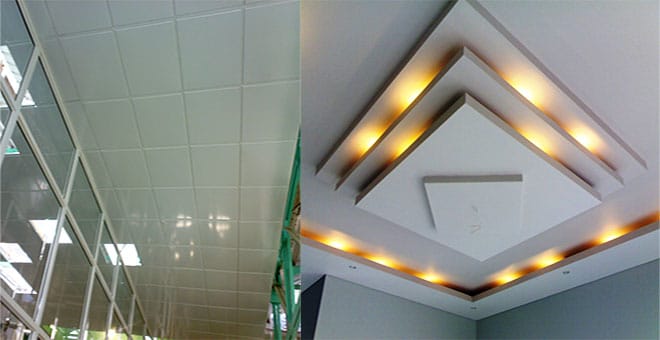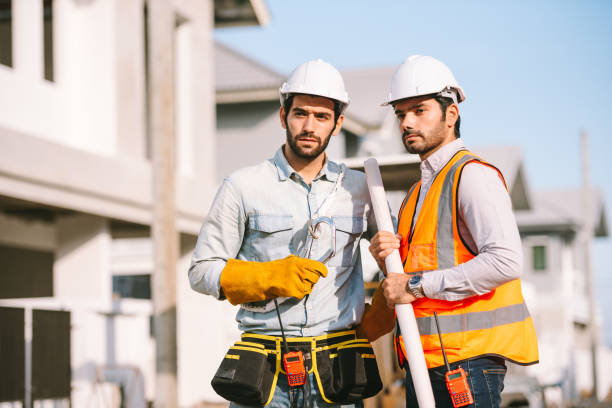What Surfaces Can Be Power Washed Safely?
Pressure washing is an effective method for cleaning various surfaces, but knowing which ones can be handled safely is essential to avoid damage. Concrete driveways and sidewalks are among the most common surfaces that withstand the high pressure without issue. Pressure Cleaning Miami highlights that concrete not only looks cleaner but maintains its durability when cleaned effectively.
Wooden decks, while needing a gentler approach, can still be power washed safely if the correct techniques and settings are used. The experts at Pressure Washing Miami suggest using a fan tip and maintaining an appropriate distance to prevent gouging the wood.
Safe Surfaces for Power Washing

Certain surfaces can be power washed safely, while others may be damaged. Knowing which surfaces can withstand the pressure is essential.
Exterior Siding
Exterior siding, including vinyl, brick, and fiber cement, can be safely power washed. Vinyl siding should be washed with a low-pressure setting to prevent deformation. Brick siding benefits from power washing to remove accumulated grime but must be done carefully to avoid eroding the mortar.
Fiber cement siding is also resilient to power washing, making it a popular choice for those looking to clean effectively without compromising material integrity.
Concrete and Asphalt
Concrete and asphalt surfaces, such as driveways, walkways, and patios, can withstand the force of power washing. These materials are durable and not easily damaged by high pressure. Power washing removes stains, dirt, and mildew effectively from these surfaces.
For stained or discolored concrete, a higher pressure may be employed, while asphalt should be treated with a lower pressure to avoid surface damage.
Outdoor Furniture
Outdoor furniture made from materials such as plastic, metal, and some types of wood can be power washed. Plastic furniture is highly resistant to cracking and can be cleaned effectively. Metal furniture benefits from power washing by removing rust and dirt, though it should then be dried thoroughly to prevent corrosion.
Wooden furniture, such as teak or cedar, should be power washed using a gentle setting to avoid damaging the surface or causing splintering.
Vehicles and Boats
When it comes to vehicles and boats, power washing can be used for cleaning exterior surfaces. Cars, trucks, and motorcycles should be cleaned with a low-pressure setting to avoid stripping paint or causing dents. Boats, including both fiberglass and aluminum hulls, can be power washed to remove saltwater buildup and marine life, but care should be taken around delicate decals or other sensitive components.
Careful use of power washers on these surfaces ensures efficient cleaning without damaging the underlying material. Always consider the appropriate pressure settings and nozzle types for each specific surface to achieve the best results.
Best Practices for Power Washing

Understanding the correct methods for power washing various surfaces is crucial for achieving optimal results and preventing damage. This section provides essential best practices for power washing, including assessing the surface material, choosing the appropriate pressure, mastering techniques, and selecting eco-friendly solutions.
Assessing Surface Material
Before starting, evaluate the type of surface to be cleaned. Different surfaces react differently to pressure washing.
For instance, concrete and brick can handle higher pressures, while wood and vinyl may require gentler settings. Assess for any pre-existing damage like cracks or loose paint, as power washing could exacerbate these issues.
Consult specialists such as Pressure Cleaning Miami for professional advice on specific surfaces.
Choosing the Right Pressure
Selecting the appropriate pressure is vital.
High pressures can clean stubborn stains but may damage delicate surfaces. Typically, concrete and brick surfaces can withstand up to 3,000 psi. For softer materials like wood and vinyl, keep it below 1,500 psi to avoid damage.
Utilize a pressure gauge to monitor and adjust the pressure accordingly. Always start with the lowest setting and gradually increase it if necessary.
Power Washing Techniques
Proper technique enhances cleaning efficiency and minimizes damage. Make use of a consistent motion, keeping the nozzle moving to avoid concentrated pressure in one spot.
Maintain a safe distance, usually 6-12 inches, between the nozzle and the surface. Employ the appropriate nozzle type: a 25-degree nozzle is versatile, while a 40-degree nozzle covers larger areas with less force.
Eco-Friendly Cleaning Solutions
Opt for eco-friendly detergents to minimize environmental impact. Many commercial cleaners contain harsh chemicals that can harm plants, animals, and water sources.
Natural alternatives like vinegar or biodegradable soaps are effective and safe. Check with local authorities for approved eco-friendly products. Firms like Pressure Cleaning Miami often use sustainable solutions to comply with environmental regulations.







